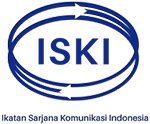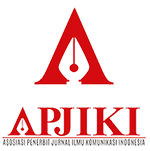Exploration of Critical Skills For Teachers In Digital Literacy Practices Education Program
Abstract
The increasing penetration of the internet and digital devices significantly impacts learning in technological media. Teachers play an important role in improving their competencies through training programs supported by the government. Dompet Dhuafa's Digital Literacy Education Training for Trainers program aims to improve digital literacy among Sekolah Guru Indonesia (SGI) activists. The program includes training in copywriting, learning video creation, the concept of Society 5.0, and future internet professions. The top five participants' work was certified by the Ministry of Law and Human Rights, highlighting a novel approach as few participants developed strong comprehension and critical thinking skills. This research explores the critical thinking ability of the best participants in the digital literacy program, specifically in creating learning videos that obtain intellectual property rights. The method used was phenomenology, in-depth interviews were conducted with five top participants. The findings of this study revealed three main components affecting the implementation of the program: mastery of critical thinking, lack of mastery of critical thinking, and difficulties in improving participants' critical thinking skills. These results underscore the importance of critical thinking in educational training and the challenges in developing this skill among teachers.
Keywords
Full Text:
PDF (ENGLISH)References
Andriani, J. (2021). Best Practice Kegiatan Literasi di Pusat Perpustakaan dan Penyebaran Teknologi Pertanian. Journal of Documentation and Information Science, 5(2), 94–101.
Anggraini, C. N., & Pertiwi, M. (2022). Digital Media Information Literacy Program For Teacher. Charity, 5(2a), 31. https://doi.org/10.25124/charity.v5i2a.5140
Anggraini, C. N., Pertiwi, M., & Pramiyanti, A. (2021). Program Pendidikan Literasi Digital Untuk Guru Sekolah Guru Indonesia Dompet Dhuafa Sumatera Selatan. Proseding Community Service & Enagagement Seminar (COSECANT), 1(2), 88–90.
Aslamiyah, N., Supriyanto, A., Harahap, N., & Murtafiah, N. H. (2022). Kebijakan Pengambilan Keputusan Pimpinan Dilingkungan Pondok Pesantren untuk Meningkatkan Kualitas Manajerial Pendidikan Formal. Attractive : Innovative Education Journal, 4(3), 150–165. https://www.attractivejournal.com/index.php/aj/
Bhatti, Z., Majid Shah, S., Zahid Tunio, M., Hussain Brohi, S., & Iqbal Memon, A. (2020). Multimedia-Based e-Learning for Educating Children. Sukkur IBA Journal of Computing and Mathematical Sciences, 4(1), 21–27.
Dewi, N. P. C. P. (2022). Analisis Buku Panduan Guru Fase A Kelas I Kurikulum Merdeka Mata Pelajaran Pendidikan Pancasila pada Jenjang Sekolah Dasar. EdukasI: Jurnal Pendidikan Dasar , 3(2), 131–140. http://jurnal.stahnmpukuturan.ac.id/index.php/edukasi
Fatmawati, E. (2020). Monograf Sebagai Salah Satu Cara Publikasi Buku Dari Hasil Penelitian. IQRA: Jurnal Perpustakan Dan Informasi, 14(1), 130–155.
Gouseti, A., Lakkala, M., Raffaghelli, J., Ranieri, M., Roffi, A., & Ilomäki, L. (2023). Exploring teachers’ perceptions of critical digital literacies and how these are manifested in their teaching practices. Educational Review, 1–35. https://doi.org/10.1080/00131911.2022.2159933
Gustanti, Y., & Ayu, M. (2021). The Correlation Between Cognitive Reading Strategies And Students’ English Proficiency Test. Journal of English Language Teaching and Learning (JELTL), 2(2), 95–100. http://jim.teknokrat.ac.id/index.php/english-language-teaching/index
Hambali, H., Rozi, F., & Farida, N. (2021). Pengelolaan Pembelajaran Ilmu Tajwid Melalui Media Audiovisual. Jurnal Kajian Penelitian Dan Pendidikandan Pembelajaran (Naturalistic), 5(2), 872–881.
Harley, J. M., Pekrun, R., Taxer, J. L., & Gross, J. J. (2019). Emotion Regulation in Achievement Situations: An Integrated Model. Educational Psychologist, 54(2), 106–126. https://doi.org/10.1080/00461520.2019.1587297
Hendika Permana, I. P. (2021). Analisis Rasio Pada Akun YouTube Untuk Penelitian Kualitatif Menggunakan Metode Ekploratif. Jurnal Ilmiah Media Sisfo, 15(1), 40–48. https://doi.org/10.33998/mediasisfo.2021.15.1.970
Irfan, M., & Basuki, G. (2023). Identifikasi Kerusakan Mesin Penyebab Kegagalan Produksi Dengan Menggunakan Metode Failure Mode and EffectAnalysisPada Rumah Pompa Distribusi Utara PT XYZ. Prosiding Seminar Nasional Teknologi Industri Berkelanjutan III (SENASTITAN III), 1–8.
Jumrana, Utami Rezkiawaty Kamil, S., Sumule Gengong, M., Tri Susilawaty, F., & Simatupang, Y. (2021). Pelatihan Literasi Media Dalam Membudayakan Pola Bepikir Kritis Guru SMA di Kota Kendari. Prosiding Seminar Nasional Pengabdian Kepada Masyarakat, 2(1). http://journal.unj.ac.id/unj/index.php/snppm
Khaliq, A., & Nasution, R. (2019). YouTube as a Media in English Language Teaching (ELT) Context: Teaching Procedure Text ARTICLE HISTORY. Journal of Ultimate Research and Trends in Education, 1(1), 29–33. http://ojs.journal.unilak.ac.id/index.php/utamax
Khongput, S. (2020). Metastrategies Used by EFL Students in Learning English Writing: Self-reflection. In Journal : Language Education and Acquisition Research Network Journal (Vol. 13, Issue 2).
Leaning, M. (2019). An approach to digital literacy through the integration of media and information literacy. Media and Communication, 7(2 Critical Perspectives), 4–13. https://doi.org/10.17645/mac.v7i2.1931
Limna, P. (2023). The impact of NVivo in qualitative research: Perspectives from graduate students. Journal of Applied Learning & Teaching, 6(2), 1–12. https://doi.org/10.37074/jalt.2023.6.2.17
Literat, I. (2014). Measuring New Media Literacies: Towards the Development of a Comprehensive Assessment Tool. Journal of Media Literacy Education, 6(1), 15–27. www.jmle.orgwww.jmle.org
Meliantina. (2019). Menerapkan Budaya Literasi Guru Sekolah dalam Upaya Meningkatkan Pendidikan di Era Industri 4.0. Jurnal Ilmu Pendidikan, 3(2).
Mulianingsih, F., Kintoko, Setyawan, F. B., & Prananto, I. W. (2023). Literacy House: Is It Important in a Fisherman’s Village? Proceedings of the 1st UPY International Conference on Education and Social Science (UPINCESS 2022), 132–140. https://doi.org/10.2991/978-2-494069-39-8_12
Munawarah, L., Soendjoto, M. A., & Halang, B. (2018). Kemampuan Berpikir Kritis Mahasiswa Pendidikan Biologi melalui Penyelesaian Masalah Toksikologi Lingkungan. Jurnal EDUSAINS, 10(1), 2–6.
Novitasari, Y., & Fauziddin, M. (2022). Analisis Literasi Digital Tenaga Pendidik pada Pendidikan Anak Usia Dini. Jurnal Obsesi : Jurnal Pendidikan Anak Usia Dini, 6(4), 3570–3577. https://doi.org/10.31004/obsesi.v6i4.2333
Nur Syafiq, A., Rahmawati, A., & Oktaviana, T. (2021). Increasing Speaking Skill through YouTube Video as English Learning Material during Online Learning in Pandemic Covid-19 ARTICLE HISTORY. In Elsya : Journal of English Language Studies (Vol. 3, Issue 1). http://ojs.journal.unilak.ac.id/index.php/elsya
Nuraida, D. (2019). Peran Guru Dalam Mengembangkan Keterampilan Berpikir Kritis Siswa Dalam Proses Pembelajaran. Jurnal Teladan, 4(1), 52–59.
Oktaria, M., Hardono, H., Wijayanto, W. P., & Amiruddin, I. (2023). Correlation Between Knowledge with Attitude towards Hypertension Dietary on The Elderly. Jurnal Ilmu Medis Indonesia (JIMI), 2(2), 69–75. https://doi.org/10.35912/jimi.v2i2.1512
Oranburg, S. C. (2020). Distance Education in the Time of Coronavirus: Quick and Easy Strategies for Professors.
Potter, W. J. (2019). Media Literacy Ninth Edition 2 (L. Norton, Ed.; 9th ed.). SAGE Publications .
Raharjo, N. P., Winarko, B., Balai, B., Sumber, P., Manusia, D., & Surabaya, P. (2021). Analisis Tingkat Literasi Digital Generasi Milenial Kota Surabaya dalam Menanggulangi Penyebaran Hoaks. 33. https://doi.org/10.31504/komunika.v9i1.3795
Restaty, S. M. N., & Wuryanta, E. W. (2022). Digital Media Literacy And Social Media Competence Among Millennials For Tourism Promotion During The Covid Pandemic. Interaksi: Jurnal Ilmu Komunikasi, 11(2), 130–143.
Rianto, P. (2019). Literasi Digital Dan Etika Media Sosial Di Era Post-Truth. Interaksi: Jurnal Ilmu Komunikasi, 8(2), 24–35.
Roxo, F. (2020). Transmedia storytelling as a potential employer branding strategy: Participatory culture and recruitment. U.Porto Journal of Engineering, 6(1), 66–77. https://doi.org/10.24840/2183-6493_006.001_0007
Sa’adah, S., Maryanti, S., Maspupah, M., & Mas’ud, A. (2020). Literasi Digital Mahasiswa Calon Guru Biologi dalam Menyusun Bahan Ajar Berbasis Audiovisual. 1–19.
Supit, D., Meiske Maythy Lasut, E., Jerry Tumbel, N., Klabat, U., Airmadidi Bawah, J., & Utara, S. (2023). Gaya Belajar Visual, Auditori, Kinestetik terhadap Hasil Belajar Siswa. Journal on Education, 05(03), 6994–7003.
Syafitri, E., Armanto, D., & Rahmadani, E. (2021). Aksiologi Kemampuan Berpikir Kritis. Journal of Science and Social Research, 3, 320–325. http://jurnal.goretanpena.com/index.php/JSSR
Tobing, S. M. (2019). Pemanfaatan Internet Sebagai Media Informasi Dalam Kegiatan Belajar Mengajar Pada Mata Kuliah Pendidikan Pancasila. Jurnal PEKAN: Jurnal Pendidikan Kewarganegaraan, 4(1), 64–73.
Tuhuteru, L. (2020). Pendidikan Karakter Untuk Generasi Muda Pasca Konflik Sosial Ambon Peran PKn. Jurnal Pendidikan Ilmu Pengetahuan Sosial (JPIPS), 1(12), 28–39. http://e-journal.upr.ac.id/index.php/JP-IPSJuni202028
Watt, D. (2019). Video production in elementary teacher education as a critical digital literacy practice. Media and Communication, 7(2 Critical Perspectives), 82–99. https://doi.org/10.17645/mac.v7i2.1967
Wijayanto, X. A., Fitriyani, L. R., & Nurhajati, L. (2022). Literasi Digital Tentang Vaksin Covid-19 Di Kalangan Guru Sma Di Indonesia. WACANA: Jurnal Ilmiah Ilmu Komunikasi, 21(1), 36–49. https://doi.org/10.32509/wacana.v21i1.1724
Yusanto, F. (2021). Membuat Video Pembelajaran.
DOI: https://doi.org/10.32509/wacana.v23i1.3418
Refbacks
- There are currently no refbacks.

This work is licensed under a Creative Commons Attribution-NonCommercial-ShareAlike 4.0 International License.
Indexed by:
Recommended Tools :
Wacana: Jurnal Ilmiah Ilmu Komunikasi
Fakultas Ilmu Komunikasi, Universitas Prof. Dr. Moestopo (Beragama)
Kampus I, Jl. Hang Lekir I/8 Jakarta Pusat, Indonesia 10270
WA: 085714422271 (Chat Only)
email: wacana@dsn.moestopo.ac.id
Copyright (c) 2025 Wacana: Jurnal Ilmiah Ilmu Komunikasi
Licensed under a Creative Commons Attribution-ShareAlike 4.0 International License.














